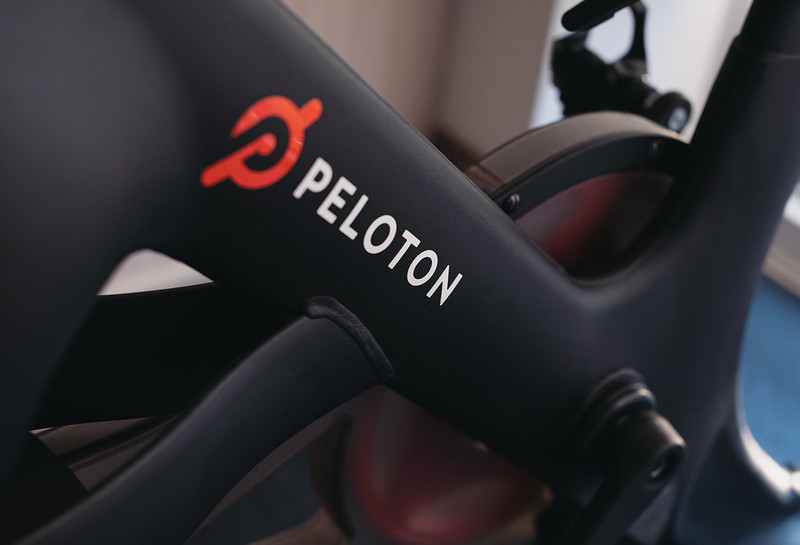Two of the biggest brands in the fitness industry went head-to-head recently in a lawsuit for trademark infringement, which means one company is using some form of a trademark that another company believes is too similar to their own. Peloton has sued Lululemon over trade dress, which is a type of trademark that encompasses product design or product packaging.
Brief History of the Parties
Peloton is known for its high-end, at-home workout machines and classes, and has sued to protect its athletic wear line from trademark infringement. At number 1, Lululemon Athletica is the most popular activewear brand of 2022. To understand the sheer size and popularity of Lululemon compared to Peloton, when it comes to clothing, Peloton does not even appear in the top 15 most popular brands of 2022, according to USA today.


Lululemon began selling yoga apparel in Canada in 1998. The original store was a design studio during the day, and a yoga studio at night. Over time, it eventually solely became a clothing store, with its famous leggings taking off among American teens in 2014. One Chicago Tribune writer credited Lululemon with the rise in popularity of yoga clothes as regular clothes. Athleisure (or athletic clothes for leisure) is now commonplace in American culture and stores.
Peloton began selling clothing with its launch in 2013, when the idea of athleisure took off. However, its clothing did not become popular until 2017-2019. At first collaborating with brands such as Gap, Peloton only announced its own apparel line in September of 2021.
What is Trade Dress?
Trade dress is all about the look and feel of a good or service. Trade dress is valid if it identifies a good or service from others and if it is not “functional.”
There are two types of trade dress: product design and product packaging. Product design is the design of the actual product, such as a Nike shoe, whereas product packaging is the box the shoes come in. Product design is at issue in this case since Lululemon has created a product, its Align Legging, that it claims Peloton has copied. Product design can never be inherently distinctive, meaning that on its own, it does not identify its source. To establish distinctiveness, there must be a showing of secondary meaning, such that the design has an additional meaning in the eyes of consumers as being from a single source, rather than simply an attractive design. If customers associate Lululemon’s Align leggings with Lululemon, that qualifies as having secondary meaning. This is just one part of the test to determine if a trade dress is valid.
The next consideration for a valid trade dress is functionality, which is a complete bar to trade dress. There are two main types of functionality, aesthetic and utilitarian. Aesthetic functionality is the look or design that competitors need. Because many people expect toilet bowl cleaners to be blue, one company cannot claim the color blue for a toilet bowl cleaner because that would be unfair to competitors. Meanwhile, utilitarian functionality means that the design itself is useful. If there is a patent covering an aspect of trade dress or if an aspect of trade dress is necessary for the operation of the good, either is indicative of utilitarian functionality.


The Court Action
Lululemon and Peloton worked together on co-branded apparel from 2016 to 2021. Once Peloton decided to start selling its own apparel, it began phasing out other companies’ apparel on its website. After Peloton’s large marketing campaign introduced its new apparel, Lululemon sent a cease-and-desist letter to Peloton claiming Peloton was infringing its clothing designs. When Peloton did not cease, Lululemon sued for trade dress infringement.
Lululemon claimed that Peloton infringed its trade dress rights for its “Align” leggings, one of Lululemon’s most lucrative products, and a few other products. Lululemon argued that Peloton’s version was too similar to its own and that Peloton’s version would confuse consumers about the source of the pants since each company’s product would be sold in the same market (athletic wear) and to similar consumers (primarily women who wear workout attire).
To invalidate the idea that Lululemon has any valid trade dress in the leggings, Peloton argued that many design elements Lululemon claimed as their own are actually common throughout the athletic-wear market, and that Lululemon is not the only one that can use them. Lululemon countered by suggesting that Peloton did not spend the adequate time or resources to develop their own designs or products and was instead selling knock-offs of Lululemon’s items – items for which Lululemon asserts it are valid trade dress.
Did Peloton Violate Lululemon’s Trade Dress?
Trade dress infringement is when one company copies another company’s trade dress in such a way that confuses consumers about the source of the goods or services. In order to analyze whether Peloton has infringed Lululemon’s trade dress, Lululemon must show that they have a valid trade dress and that Peloton is using the same or similar trade dress in commerce (and if registered, causes likelihood of confusion).
In this case, Lululemon claimed that they have a valid trade dress for their leggings and that by Peloton using the same design, Peloton has caused consumer confusion. Peloton argued that because each brand’s logos are so distinct and well-recognized, consumers will not be confused by similar products or designs, which would negate a finding of infringement. Peloton also argued that because there were other brands using similar designs in the market before Lululemon, Lululemon’s designs are not distinctive, such that Lululemon does not have valid rights in the products to exclude Peloton from using similar designs. If Lululemon does not have valid trade dress, then Peloton is not infringing.
Lululemon however does have a valid trade dress on many of its products/product designs, including a valid trade dress over the Align legging design specifically. The parties ultimately agreed that Peloton would phase out the products that Lululemon sued over, in order to settle the suit, though Peloton never directly conceded trade dress infringement. Therefore, Lululemon’s trade dress stands because Peloton will be phasing out the look-alike products.
What It Means for Each Brand Going Forward
At the end of the day, brands have to think about their image when engaging in a high-profile lawsuit, especially when another large company is at the receiving end of said lawsuit. Lululemon and Peloton likely have customers that purchase both brands, and each company has to remain aware of not looking like they are trying to unfairly squeeze the other out of the market. Trademark law exists for a reason, however. A brand as recognizable as Lululemon wants to protect their protects and their style. With trademark law, Lululemon can ensure that companies like Peloton cannot profit off of its designs.

Bella Field
Associate Blogger
Loyola University Chicago School of Law, JD ‘24
